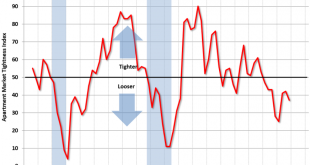from Edward Fullbrook The General Theory of Employment, Interest and Money was the first book I ever read with pleasure. I was 22. From age five to sixteen the school system had me classified as borderline mentally retarded. My luck changed in my penultimate year of high school when a non-conformist English teacher gave me the chance to pretend I was not mentally deficient. She also taught me how to write a sentence, after which, inflated with fantasises of normality, I taught myself...
Read More »Sapiential Economics
from Robert Locke Neoclassical economists insist that the formal system of knowledge they create takes precedence over what we learn through experience, on the grounds, as Erich Schneider wrote, “that the sea of facts is dumb and can only be forced to reveal interconnections when properly queried. Intelligent [sinnvoll] questions can only be derived from theoretical formal analysis.” (Bomback and Tacke, 37) But what if it were the other way around that formal knowledge systems are dumb...
Read More »Apartments index, JOLTS chart, Rig count chart
Yet another chart that looks like we might already be in recession: Hires quits were the leading indicators in the last cycle: Rig count peaked a few months ago:
Read More »Open thread Oct. 24, 2017
The real costs of making (and using) money – the bitcoin waste
Bitcoins are a total waste. On this blog, I’ve written some posts on ‘the real costs of making money’ (a summary here). Producing money takes resources: labor, capital, land. One of the ’land’ aspects used to be silver and gold. Digging for gold and silver a social setting: the slaves in the silver mines of Larium (Athens), the native workers which perished in the high altitude silver mines of Cerro Ricco, Peru (the Spanish empire). Or ‘apartheid’, which guaranteed a steady flow of cheap...
Read More »Monopolies
from Asad Zaman Building on the analysis of Supply and Demand in Chapter 3 of Hill and Myatt’s Anti-Textbook, this lecture constructs a very simple model of monopoly and duopoly, to show that policy implications in these cases differ dramatically from what conventional textbooks teach. The higher level goal is to teach students Meta-Theoretical thinking. This goes beyond the binary logic which lies behind conventional textbooks, which teach student to think in terms of whether theories...
Read More »When People will not be Judged by the Color of their Skin, But On Where Their Ancestors Were Judged by the Color of their Skin
The Wall Street Journal had a piece that made reference to this story in the Cornell Daily Sun: Martha E. Pollack, nearing the six-month mark of her presidency, is facing her first major test at Cornell after hundreds of black students, responding to the arrest of a student who may be charged with a hate crime, marched into her office last week and hand-delivered a series of demands. The most interesting of the demand is: We demand that Cornell Admissions...
Read More »How to weather the Brexit storm? Focus less on trade, more on investment.
This article was first published on the Prospect magazine website on 15th October 2017 “Strong and stable” seems of a world so far, far away. Yesterday’s Daily Mail headline “PM slaps treacherous Chancellor down” portrays a government in political chaos. Thanks to open, unresolved intra-Brexiteer warfare, ministers are unable to agree the basics of how to exit the European Union. This state of uncertainty intensifies just as the risks to British jobs and living standards are becoming starker...
Read More »Laughter is the best medicine
from David Ruccio Sometimes we just have to sit back and laugh. Or, we would, if the consequences were not so serious. I’ve been reading and watching the presentations (and ensuing discussions) at the Rethinking Macroeconomic Policy conference recently organized by the Peterson Institute for International Economics. Quite a spectacle it appears to have been, with an opening paper by famous mainstream macroeconomists Olivier Blanchard and Larry Summers and a closing session—a “fireside...
Read More »Joan Robinson and the inadequacies of revealed preference theory
from Lars Syll We are told nowadays that since utility cannot be measured it is not an operational concept, and that ‘revealed preference’ should be put in its place. Observable market behaviour will show what an individual chooses … It is just not true that market behaviour can reveal preferences. It is not only that the experiment of offering an individual alternative bundles of goods, or changing his income just to see what he will buy, could never be carried out in practice. The...
Read More » Heterodox
Heterodox





